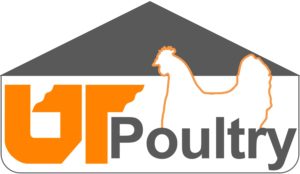As we move deeper into the fall waterfowl migration season, avian influenza outbreaks continue to pound U.S. commercial and backyard poultry flocks. The most recent break (November 29) occurred on a commercial broiler farm next door to Tennessee in Carroll County, Arkansas. There have been multiple avian influenza breaks on large million-plus bird table egg operations in Iowa, Minnesota, and Ohio as well as in numerous backyard flocks across the country in recent weeks. Approximately 100 confirmed cases of avian influenza have been reported in the last 30 days in the U.S.
There is no cure for avian influenza. Biosecurity is the best weapon we have against the disease. However, biosecurity is a powerful weapon with proven results when used correctly. As of November 29th, 399 commercial flocks and 574 backyard flocks totaling 67.79 million birds have been affected since the most recent avian influenza outbreak started in 2021. In many of these cases, a breach in biosecurity allowed the virus to reach susceptible flocks. Failure to follow proven biosecurity practices puts your flock and the flocks of others at risk. Continued flock losses, particularly in large million-plus bird table egg operations, will likely lead to higher egg prices in the coming weeks similar to what we saw this time last year.
Good biosecurity requires extra time and extra effort but think about this….what is it worth to keep avian influenza out of your flock? Biosecurity hinges on three simple and basic principles….isolation, traffic control, and sanitation. If you manage those three things correctly, every day and every time you are around your chickens, then the likelihood of them becoming infected drops tremendously. But it has to be every day and every time. Only one mistake only one time is all it takes to put your birds in contact with the avian influenza virus. Unknowingly tracking the virus into your chicken house or coop or backyard pen is a serious and likely possibility unless the necessary precautions are taken. Dedicate footwear to use only in the chicken house or pen or use disposable footwear when working in your chickens.
Know the warning signs of disease in birds (listed below) and closely monitor your flock for any unusual symptoms, particularly respiratory symptoms like coughing, sneezing, nasal discharge, watery eyes and swollen sinuses. If you are a commercial poultry producer, notify your field technician at the first indication of a disease issue. If you are a backyard flock keeper, notify your county agent, local veterinarian, Kord Diagnostic Lab in Nashville (615-837-5125), Tennessee State Veterinarian’s office (615-837-5120), or a poultry Extension specialist at Tennessee State University (615-963-5823) or The University of Tennessee (931-486-2129). Possible disease signs include:
- Sneezing
- Coughing
- Swollen sinuses
- Nasal discharge
- Watery eyes
- Twisted neck
- Decreased feed and water intake
- Dehydration
- Decreased egg production
- Misshapen eggs
- Decreased fertility and hatchability
- Depression
- Huddling
- Lethargy
- Increased mortality
Remain on high alert throughout migration season and if your birds go ADR on you and “Ain’t Doing Right”, don’t wait around to see if they get better. Get help as soon as you know you have a problem. Backyard flocks that are free ranged or have open roofs are particularly at risk. Backyard flock keepers should keep birds in pens that are covered with roofs or tarps to prevent exposure to wild bird feces as the avian influenza virus is in the manure of wild waterfowl and keep poultry away from any pond or other water source that wild waterfowl may visit. Backyard flock owners should quarantine and isolate any new or sick birds from your other birds for a minimum of three weeks, 30 days is even better. Do not allow unnecessary visitors near your birds and keep a record of all necessary visitors and dates they were there. If you visit an area where there are waterfowl or other poultry, do not visit your birds until you change shoes/clothes, take a shower and wash your hands. Keep hand sanitizer at the coop and use it before and after visiting your birds.
We are nowhere near out of the woods yet where the avian influenza threat is concerned. No matter how good you may think your biosecurity practices are, ratchet them up another notch or two. The increasing number of avian influenza cases is proof, that as a country, our overall biosecurity program still leaves something to be desired. Good luck keeping your flock safe during migration season. If those of us on the UT poultry team can assist you in any way, please let us know.
